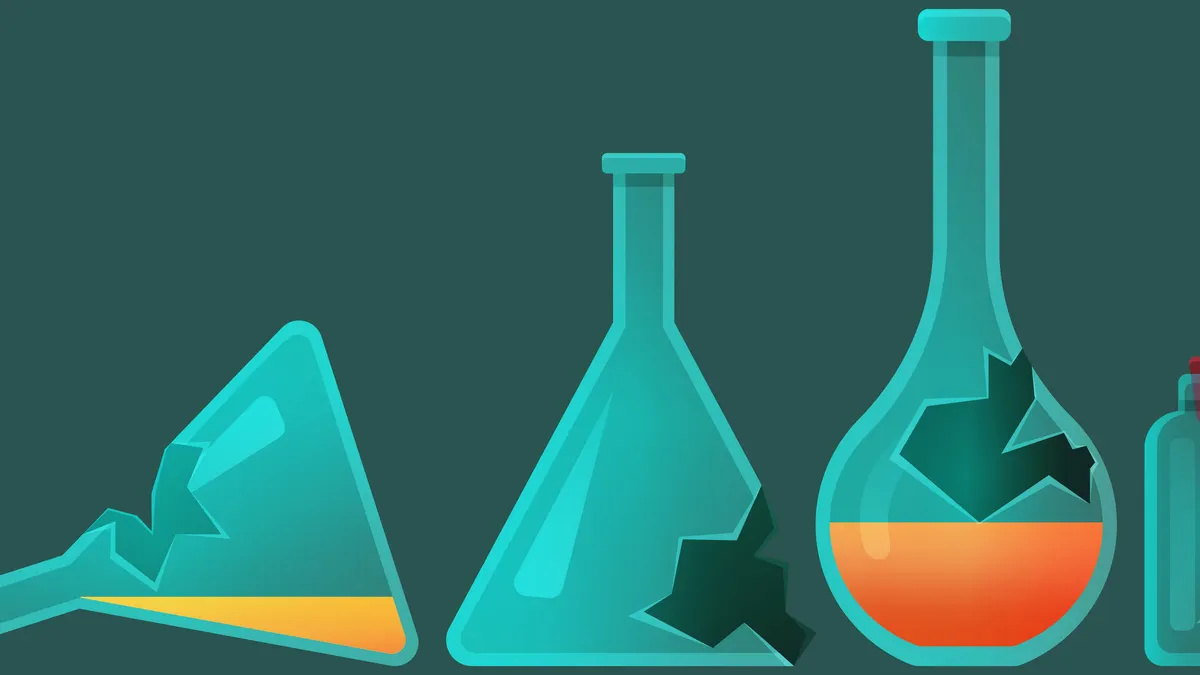Biotech’s challenges roll deep on the road to innovation, from the intrinsic complexity of biology itself to regulatory uncertainty and financial valleys. Despite the magnitude of these challenges, many leaders are optimistic about getting to the other side.
At the BIO International Convention earlier this week, we caught up with a wide range of leaders and dug into common themes that could shine a light on the industry’s future.
One of our across-the-board questions was: “What is the greatest challenge facing the industry today that is also one of its greatest opportunities?”
Here’s what leaders had to say about rising to the moment in biotech, and what it might take to remain viable and create the medicines of the future.
Finding financial footing
Biotech’s investment market has undulated since the COVID-19 pandemic, and many companies are feeling the crunch. But with that squeeze comes an opportunity to show resilience, and potentially a chance for transformative science to rise to the top.

“It’s been a tough three to five years for our industry — but before that, it was a very frothy industry with a lot of capital, and that’s an environment that’s less efficient and less focused. It’s not that you need to be in a crucible to create diamonds, but it’s helpful,” said David Lee, executive vice president for the U.S. at Servier Pharmaceuticals. “So one of the challenges to our industry is separating the really good science from the rest. The companies [that] are able to unlock that value will continue to do well while others may continue to fall away.”
For many biotechs, timing is everything. Even in a tough financial landscape, a wider acceptance of new modalities and a push to make the regulatory process more efficient could drive a more lucrative future.
“Our biggest challenge is access to capital. We were lucky to do our IPO in 2021, when access to capital was booming, but now it’s dried up. The opportunity right now is that the FDA is on record saying they’re trying to optimize approval of rare pediatric diseases, as well as cell and gene therapies,” said Dr. Joshua Hare, co-founder, chief science officer and chairman at regenerative medicine biotech Longeveron. “So while our access to capital might be challenging, we have greater opportunity to get products approved.”
The issue of timing is also critical as biotechs look to potential deals with Big Pharma. Companies with blockbuster drugs face an unprecedented patent crunch this decade and need to look to the biotech sector to fuel their pipelines.
“One of the biggest challenges, at least economically, is loss of exclusivity at a lot of companies,” said Dr. William Pao, CEO of the stealth oncology biotech Revelio Therapeutics. “The opportunity there is that we’ll get a whole new crop of therapies in multiple indications — different areas of science mature at different times, and hopefully the new wave of innovation and technology is full of breakthroughs. This is the biological century.”
Even advances in the most promising areas of biology are expensive, though, and companies on the industry’s drug delivery side see new growth opportunities by bringing technology to innovative biotechs at a lower cost.
“Advances in mRNA are a major opportunity, but as an API it’s still super expensive,” said Michael Parr, director of formulation and process development for the specialty chemicals and drug delivery company Evonik. “Getting the cost down for that would allow early-stage companies to afford to play around more with the actual material and not some surrogate.”
On the other hand, biotechs have a chance to mitigate healthcare costs down the road, particularly for diseases that are set to have a major financial impact in an aging population.

“Alzheimer’s is going to cost $300 billion a year in the next 10 years, and that could bankrupt Medicare and have a terrible financial impact on families,” said Karen Harris, CFO and head of mission-related investing at the Alzheimer’s Drug Discovery Foundation. “But there’s so much opportunity right now, there are going to be new drugs, and I see a lot of promise ahead for therapies based on the biology of aging.”
New scientific frontiers
Taking steps into new modalities and biological mysteries requires patience and creativity. For companies seeking to understand and treat diseases that have challenged the industry for decades, innovation is both a challenge and an opening.

“This is a great opportunity to be brave in biotech. We try to be fearless as we think about doing different science and tackling the hard task of treating complicated infections,” said Jennifer Schneider, CEO and director at immunotherapy biotech Centauri Therapeutics. “If you’re not brave, the transformational leaps we’re aiming for probably just won’t happen.”
Diseases like Parkinson’s present a major challenge, but new windows into biological complexity offer a way forward — if they can be harnessed.
“Understanding more about Parkinson’s [disease], the biggest opportunity we have is peeling back the onion. We have a much fuller appreciation of the cognitive impact of Parkinson’s, which also makes the situation scarier — this ballooning of Parkinson’s patients based on better diagnosis,” said Gene Mack, CEO of Gain Therapeutics. “We’re understanding more of these different phenotypes that there are so many different ways to approach them pharmaceutically.”
In the industry’s booming weight loss arena, smaller biotechs are currently overshadowed by pharma juggernauts. But as researchers learn more about how complicated the disease is, the treatment landscape also presents an opportunity for penetration.
“We’re genetically selected to gain weight, so how do you fight your genes? Obesity is a very large and diverse disease, and no complex disease in existence can be treated with a single drug,” Martin Brenner, CEO and chief scientific officer at weight loss antibody biotech iBio. “That’s an opportunity to balance the load.”
The genomic revolution of the last few decades has sowed the seeds for major upheaval in the number and types of diseases that can be treated. Still, fostering those advances will require more than just a desire to do so.

“Ninety-five percent of the drugs that could be developed have not been developed,” said Ali Munawar, founder and CEO of Pledge Therapeutics. “That’s a huge opportunity, but the challenge is mining that space and finding stakeholders [who] believe in new biology.”
With new perspectives on biology through genetic understanding comes a chance to look back and review decades of advances from a new lens.
“We’ve come to know all of the genes — 20,000, more or less — and new ways of targeting proteins that make for a deep landscape,” said Scott DeWire, corporate senior vice president and head of global business development and licensing at Boehringer Ingelheim. “It’s a great challenge for the biotech industry to cover these 20,000 genes and go back over the list, asking ‘What did we not cover in the right way?’”
The tech fix
Like the genomic revolution, AI could change the face of the industry, but only insofar as leaders apply it to the right problems.
“The biggest opportunities are the tools that are available to everybody — it’s unprecedented what you have at your fingertips,” said Albert Seymour, CEO, president and managing director of Seamless Therapeutics. “The biggest challenge is making sure you focus them in areas where they make the most sense. In biotech, you never want to hear ‘you need to walk before you run,’ but sometimes you do.”
AI has the potential to transform data into workable solutions, but it will take a new mindset to make that dream a reality. Tailored drugs and precision medicine designed by AI models could change the industry.

“Over the last 20 to 30 years, we have an enormous amount of information we haven’t yet turned into knowledge,” said Dr. Lynda Stuart, CEO and president of the Fund for Science and Technology. “There are a lot of places where we can and should use AI to mine more efficiently, optimizing by design rather than finding a nice antibody that happens to do what you want. Let’s design the features we want with the knowledge we have.”
And to take the technology even further, biotech has an opportunity to use AI not just to do its bidding, but to explore corners of biology we can’t even fathom.
“From a technology perspective, a challenge we haven’t solved is building AI that can point out interesting areas we should focus on,” Brendan Frey, founder, founder and chief innovation officer at Deep Genomics. “We’re still in the regime where we create training sets that humans decide will be good and build models based on that — we need AI to be telling us where to look, because there might be a whole new area of biology that’s unknown.”



















